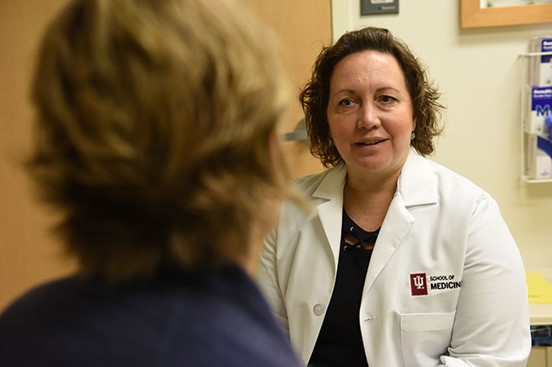Revolutionizing Cancer Treatment
Cancer treatment has seen remarkable advancements over the years, but the journey toward more effective therapies continues. Clinical trials are a crucial part of this journey, offering hope and new options for patients. In this article, we’ll explore the essential role of clinical trials in cancer treatment, including how they work, their benefits, and why they are vital for advancing medical science.
What Are Clinical Trials?
Clinical trials are research studies designed to evaluate new medical treatments, interventions, or tests. They are conducted in phases, each with specific goals and methods. Moreover, The primary aim is to determine whether a new treatment is safe, effective, and better than current options.
- Phase I: Tests the safety and dosage of a new treatment in a small group of people.
- Phase II: Evaluate the effectiveness and side effects in a larger group.
- Phase III: Compares the new treatment with the standard treatment in a large population to confirm its benefits and monitor adverse effects.
- Phase IV: Studies the treatment’s long-term effects and benefits after it has been approved.
Why Clinical Trials Are Important for Cancer Treatment
Clinical trials play a pivotal role in advancing cancer treatment by providing several key benefits:
Innovation in Treatment: Clinical trials are often the starting point for groundbreaking therapies. They test new drugs, combinations of existing treatments, and innovative approaches like immunotherapy and targeted therapy. For instance, the development of checkpoint inhibitors, a type of immunotherapy, was made possible through clinical trials.
Access to Cutting-Edge Therapies: Patients participating in clinical trials may have access to the latest treatments that are not yet available to the general public. This is particularly valuable for those with advanced cancer or for whom standard treatments have failed.
Personalized Medicine: Clinical trials help in tailoring treatments to individual patients based on genetic, environmental, and lifestyle factors. For example, trials exploring precision medicine aim to identify specific genetic mutations that can be targeted with personalized therapies.
Improved Survival Rates: Through rigorous testing and evaluation, clinical trials contribute to the development of treatments that can significantly improve survival rates and quality of life for cancer patients. Moreover, Many of the successful treatments used today were first proven effective in clinical trials.
How Clinical Trials Work?
However, Understanding how clinical trials work can provide insights into their importance:
- Design and Planning: Researchers design a trial with specific objectives, such as testing a new drug or treatment method. They outline the study’s structure, including the number of participants and the duration of the study.
- Recruitment and Consent: Patients who meet the criteria for the trial are recruited. They must provide informed consent, understand the potential risks and benefits of participating.
- Implementation and Monitoring: Participants receive the treatment under investigation and are closely monitored. Data is collected on efficacy and safety, and any side effects are recorded.
- Analysis and Results: After the trial concludes, researchers analyze the data to determine the treatment’s effectiveness and safety. The results can lead to regulatory approval and wider availability of the new treatment.
The Impact of Clinical Trials on Cancer Treatment
Clinical trials have led to numerous breakthroughs in cancer treatment. For example:
- Targeted Therapies: Drugs like imatinib (Gleevec) for chronic myeloid leukemia were developed through clinical trials. These therapies target specific cancer cells, minimizing damage to healthy cells and reducing side effects.
- Immunotherapies: Trials have shown that therapies such as CAR T-cell therapy, which modifies a patient’s T-cells to attack cancer cells, can be effective for certain types of cancer.
- Combination Therapies: Clinical trials often explore combining different treatments to enhance effectiveness. For instance, combining chemotherapy with targeted drugs has improved outcomes for many cancer patients.
Challenges and Considerations
While clinical trials offer significant benefits, they also come with challenges:
- Eligibility Criteria: Not all patients qualify for every trial, which can limit access to new treatments. Eligibility criteria ensure that the trial results are valid but can exclude some patients.
- Side Effects: New treatments may come with unknown side effects. Clinical trials are crucial for identifying these and determining the overall risk-benefit ratio.
- Duration and Cost: Clinical trials can be lengthy and expensive. The process from initial research to treatment approval can take years and significant funding.
How to Participate in a Clinical Trial
Patients interested in participating in clinical trials can start by:
- Consulting with Healthcare Providers: Oncologists can provide information about available trials and whether a patient might be a good candidate.
- Searching for Trials: Websites like ClinicalTrials.gov offer databases of ongoing trials, allowing patients to find studies that match their condition and location.
- Understanding Risks and Benefits: Patients should thoroughly discuss the potential risks and benefits of participating in a trial with their healthcare team before making a decision.
Conclusion
In summary, Clinical trials are a cornerstone of cancer treatment advancement. They provide a pathway to innovative therapies, improve patient outcomes, and contribute to the overall progress in cancer care. By participating in or supporting clinical trials, patients and researchers alike contribute to a future where cancer treatment continues to evolve, offering hope and better prospects for those affected by this challenging disease.
